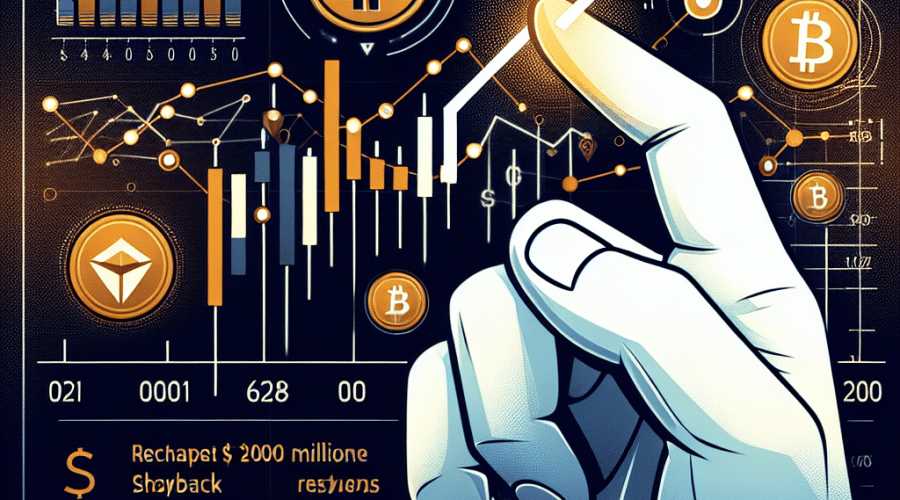Bitwise, a leading asset manager in the cryptocurrency sector, has made waves with its recent move to set a 0.20% annual management fee on its newly amended Solana Exchange-Traded Fund (ETF) proposal in the U.S. The updated filing, submitted to the U.S. Securities and Exchange Commission (SEC), also adds a competitive staking feature to the mix. Analysts are already calling this an unmistakable indicator that the race among ETF issuers in the crypto asset space is heating up, and investors are watching closely for its effect on future inflows and the broader ETF landscape.
The Competitive Edge in ETF Fees
Fees have always played a central role in the ETF space, but with cryptocurrencies entering mainstream financial products, the pressure to offer low management costs is more intense than ever. Eric Balchunas, a reputable ETF analyst, noted that Bitwise’s decision to set their Solana ETF’s fee at 0.20% was aggressive but calculated. In a recent social media post, he remarked that such a low rate might normally appear only after a “war” of price cuts, but Bitwise has chosen to preempt such a scenario and stake its ground early.
Balchunas noted, “They prob figured it’s gonna end up there anyway, so just do it now… It’s a veteran Terrordome move right there.” His assessment highlights how competitive the market has become and how strategic fee-setting has shifted from being a race to the bottom, to becoming a tactical first-mover advantage in an expanding but unpredictable market.
This annual fee of 0.20% places Bitwise’s proposed Solana ETF squarely in the middle of the typical fee range for crypto ETFs, which usually sit between 0.15% and 0.25%. Compared to traditional investment vehicles, crypto ETF fees have been under severe scrutiny because investors generally expect low costs and seamless access. As Balchunas points out, “Low fees have a near-perfect record of attracting investors, so it’s a good sign for inflow potential.”
Exploring the Fee Wars in Crypto ETFs
The trajectory of fees for crypto ETFs has been a hot topic ever since exchange-traded funds began considering digital asset products. Before the much-awaited U.S. launch of spot Bitcoin ETFs in early 2024, industry insiders speculated feverishly on which issuers would plunge fees to the lowest.
The fee war was most visible ahead of the U.S. debut of spot Bitcoin ETFs when companies fiercely jockeyed for investor attention. For example, asset manager VanEck waived all fees on its spot Bitcoin ETF and later extended this waiver until January 2026, applying to up to $2.5 billion in assets. Simultaneously, Grayscale introduced its Bitcoin Mini Trust with an industry-low annual sponsor fee of 0.15%.
Lower fees have consistently been recognized as a principal magnet for investor capital, a trend now extending to non-Bitcoin crypto ETFs as interest in alternative coins grows. With Solana emerging as a robust blockchain platform and a top-five cryptocurrency, its presence in an ETF with competitive fees signals broader mainstream acceptance and investment appetite.
Solana ETFs and the Role of Staking
Bitwise’s proposal is noteworthy for including a staking feature, making it one of the few products to incorporate on-chain rewards directly into the ETF. Staking is an essential aspect of Solana’s economic design; it allows holders to “lock up” tokens to help secure the network and, in turn, receive staking rewards. Including staking in a fund structure offers potential yield on top of potential asset appreciation, an attractive prospect for yield-hungry investors skeptical of holding Solana directly or navigating the complexities of on-chain staking themselves.
The move comes hot on the heels of the launch of the REX-Osprey Solana Staking ETF (trading as SSK) on July 2. SSK ended its inaugural trading day attracting $12 million in inflows, a robust vote of investor confidence. However, SSK charges an annual management fee of 0.75%—substantially higher than Bitwise’s proposal—and faces persistent challenges related to closely tracking the Solana spot price.
Balchunas emphasized that the Bitwise ETF is structured to be “100% physically backed by Solana’s spot assets,” minimizing tracking error. In contrast, SSK’s futures-based approach has exhibited a 12% lag compared to direct spot Solana, though some improvement has been noted recently. This highlights the need for mechanisms that synchronize ETF share values with the underlying asset’s market price, a challenge Bitwise aims to overcome with its spot-backed and staked structure.
Solana’s Strong Market Position
Over the past month, Solana’s price has shown a notable uptick, registering a 6.11% gain to trade at $227 at the time of writing. Its total market capitalization now exceeds $123 billion, with a vibrant 24-hour trading volume of over $5.5 billion.
This strength in market fundamentals boosts confidence in the viability of the Solana ETF, assuring investors of ample trading liquidity and robust network activity behind the underlying asset. The upward price momentum provides a favorable backdrop for Bitwise’s ETF amendment, potentially increasing investor interest and eventual inflows.
The BlackRock Factor: Missing in Action
Despite the growing movement toward Solana ETFs, some in the crypto community have noticed conspicuous silence from the world’s largest asset manager, BlackRock. Industry watchdogs and social media commentators have questioned why BlackRock, a juggernaut responsible for mainstreaming Bitcoin ETFs, has not yet filed for a Solana ETF.
ETF analyst James Seyffart weighed in on this question, suggesting that it would be a controversial move if BlackRock were to join the race at the last minute, after other firms had already completed the bulk of regulatory work and established market readiness. This sentiment echoes concerns within the industry that established giants could wait on the sidelines and then muscle in on new markets without incurring the initial costs or regulatory hurdles.
Regulatory Outlook: Is U.S. Approval on the Horizon?
With staking becoming a pivotal aspect of Solana’s ETF ecosystem, industry observers are increasingly optimistic about the prospects for regulatory approval. ETF analyst Nate Geraci predicted in September that several proposals for Solana ETFs, including those with staking components, could win U.S. regulatory approval by mid-October.
Such a move would represent a watershed for the cryptocurrency ETF landscape, not just for Solana but for a range of altcoins seeking legitimacy through regulated, mainstream financial products. The successful approval and operation of staking-based ETFs could also set a precedent for similar funds backed by other proof-of-stake cryptocurrencies, unlocking new avenues for investors who seek diversified exposure along with passive income features.
Perspectives From the Industry
Across the board, analysts are focusing on three crucial factors: fee competitiveness, tracking efficiency, and regulatory compliance. The consensus is clear—products that offer lower fees and track their underlying digital assets more closely will have a significant ad-vantage in attracting capital.
Bitwise’s decision to launch with a staking feature and a competitive fee signals strong confidence in Solana’s long-term viability both as a technology and as an investment vehicle. ETF analysts like Balchunas and Seyffart recognize that the real winners in this market will be those able to combine cost efficiency with technical innovation, offering investors safer and more lucrative access to crypto markets.
Meanwhile, the conversation around BlackRock continues to swirl, as investors and competitors watch for any sign that the financial giant may be preparing its own entry into Solana or other altcoin ETFs. The timing and terms of such a move could have a profound effect on the overall market structure and innovation cycles among smaller ETF issuers.
Conclusion: Bitwise Sets a Standard for Solana ETFs
Bitwise’s strategic amendment to its Solana ETF proposal, combining a remarkably low management fee with staking rewards, represents a best-in-class approach designed to attract investor capital in a fiercely competitive field. As the first U.S.-based Solana ETF with this combination of features, it stands to redefine what investors expect from a digital asset ETF: low costs, close tracking, and direct participation in network growth.
With Solana maintaining a strong market position, industry optimism for U.S. regulatory approval is building, and the absence of entrenched financial giants like BlackRock creates a rare window for agile issuers to set the tone. Should pro-staking Solana ETFs gain official approval, it will mark a pivotal milestone for the integration of altcoins into the mainstream financial ecosystem—ushering in the next chapter for fund innovation, investor inclusion, and the evolution of digital asset management in the United States.
“`

















